Filter by
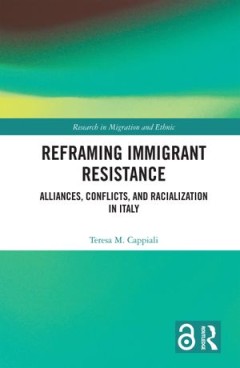
Reframing Immigrant Resistance: Alliances, Conflicts, and Racialization in Italy
This book focuses on the political participation and grassroots mobilization of immigrants and racialized communities in the European context. Based on extensive data collected in Italy, it explores the role that alliances among pro-immigrant groups play in shaping political participation, asking why and how immigrant activists mobilize in hostile environments, why and how they create alliances…
- Edition
- -
- ISBN/ISSN
- 9781351267397
- Collation
- -
- Series Title
- -
- Call Number
- 301 CAP r
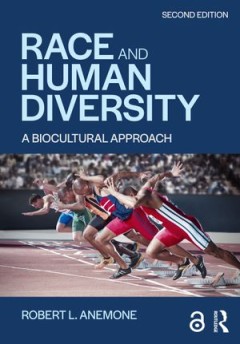
Race and Human Diversity: A Biocultural Approach
Race and Human Diversity is an introduction to the study of human diversity in both its biological and cultural dimensions. Robert L. Anemone examines the biological basis of human difference and how humans have biologically and culturally adapted to life in different environments. The book discusses the history of the race concept, evolutionary theory, human genetics, and the connections betwe…
- Edition
- -
- ISBN/ISSN
- 9781351717861
- Collation
- -
- Series Title
- -
- Call Number
- 301 ANE b
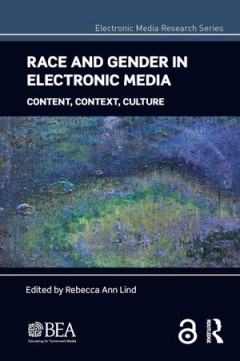
Race and Gender in Electronic Media: Content, Context, Culture
This volume examines the consequences, implications, and opportunities associated with issues of diversity in the electronic media. With a focus on race and gender, the chapters represent diverse approaches, including social scientific, humanistic, critical, and rhetorical. The contributors consider race and gender issues in both historical and contemporary electronic media, and their work is p…
- Edition
- -
- ISBN/ISSN
- 9781317266136
- Collation
- -
- Series Title
- -
- Call Number
- 302.23 LIN r
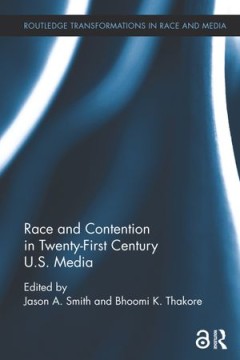
Race and Contention in Twenty-First Century U.S. Media
This volume explores and clarifies the complex intersection of race and media in the contemporary United States. Due to the changing dynamics of how racial politics are played out in the contemporary US (as seen with debates of the "post-racial" society), as well as the changing dynamics of the media itself ("new vs. old" media debates), an interrogation of the role of the media and its various…
- Edition
- -
- ISBN/ISSN
- 9781317385134
- Collation
- -
- Series Title
- -
- Call Number
- 305.8 RAC r
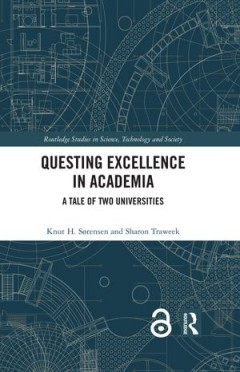
Questing Excellence in Academia: A Tale of Two Universities
Unlike almost most other studies of neoliberal universities and academic capitalism this book ethnographically explores and interprets those transformations and their contradictions empirically in the everyday practices of students, faculty members, and administrators at two public universities: NTNU in Norway and UCLA in California.Differently situated in global political economies, both are a…
- Edition
- -
- ISBN/ISSN
- 9781000528930
- Collation
- -
- Series Title
- -
- Call Number
- 301 SOR q
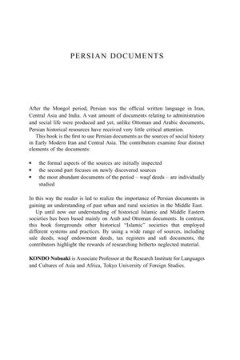
Persian Documents
After the Mongol period, Persian was the official written language in Iran, Central Asia and India. A vast amount of documents relating to administration and social life were produced and yet, unlike Ottoman and Arabic documents, Persian historical resources have received very little critical attention. This book is the first to use Persian Documents as the sources of social history in Early Mo…
- Edition
- -
- ISBN/ISSN
- 9780203508862
- Collation
- -
- Series Title
- -
- Call Number
- 300
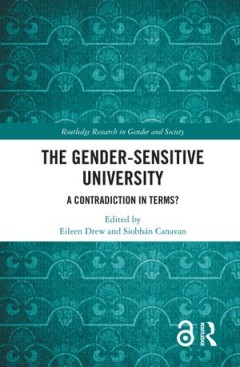
'The Gender-Sensitive University A Contradiction in Terms?
The Gender-Sensitive University explores the prevailing forces that pose obstacles to driving a gender-sensitive university, which include the emergence of far-right movements that seek to subvert advances towards gender equality and managerialism that promotes creeping corporatism. This book demonstrates that awareness of gender equality and gender sensitivity are essential for pulling contemp…
- Edition
- -
- ISBN/ISSN
- 1000163601
- Collation
- -
- Series Title
- -
- Call Number
- 300

The Non-Western World
Through a cross-cultural and multi-disciplinary approach, this introductory textbook focuses on critical issues of development, environment, and cultural conflicts facing most area of the non-Western world. Areas covered include China, Japan, Southeast Asia, the Indian subcontinent, the Middle East, and sub-Saharan Africa.
- Edition
- -
- ISBN/ISSN
- 9780203331255
- Collation
- -
- Series Title
- -
- Call Number
- 300
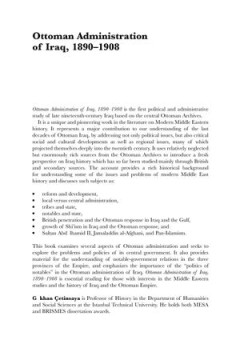
The Ottoman Administration of Iraq, 1890-1908
This is a study of the nature of Ottoman administration under Sultan Abdulhamid and the effects of this on the three provinces that were to form the modern state of Iraq. The author provides a general commentary on the late Ottoman provincial administration and a comprehensive picture of the nature of its interaction with provincial society. In drawing on sources of the Ottoman archives, bringi…
- Edition
- -
- ISBN/ISSN
- 9780203332467
- Collation
- -
- Series Title
- -
- Call Number
- 300
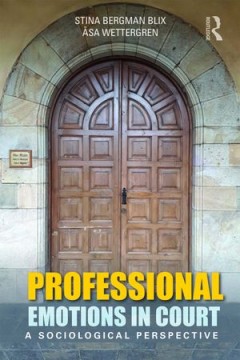
Professional Emotions in Court: A Sociological Perspective
Professional Emotions in Court examines the paramount role of emotions in the legal professions and in the functioning of the democratic judicial system. Based on extensive interview and observation data in Sweden, the authors highlight the silenced background emotions and the tacitly habituated emotion management in the daily work at courts and prosecution offices. Following participants ‘ba…
- Edition
- -
- ISBN/ISSN
- 9781315306735
- Collation
- -
- Series Title
- -
- Call Number
- 301 BLI p
 Computer Science, Information & General Works
Computer Science, Information & General Works  Philosophy & Psychology
Philosophy & Psychology  Religion
Religion  Social Sciences
Social Sciences  Language
Language  Pure Science
Pure Science  Applied Sciences
Applied Sciences  Art & Recreation
Art & Recreation  Literature
Literature  History & Geography
History & Geography